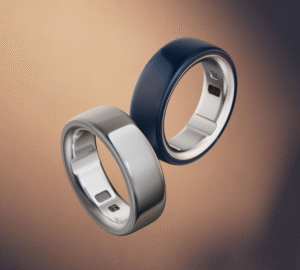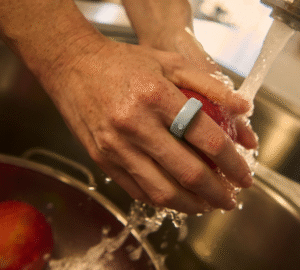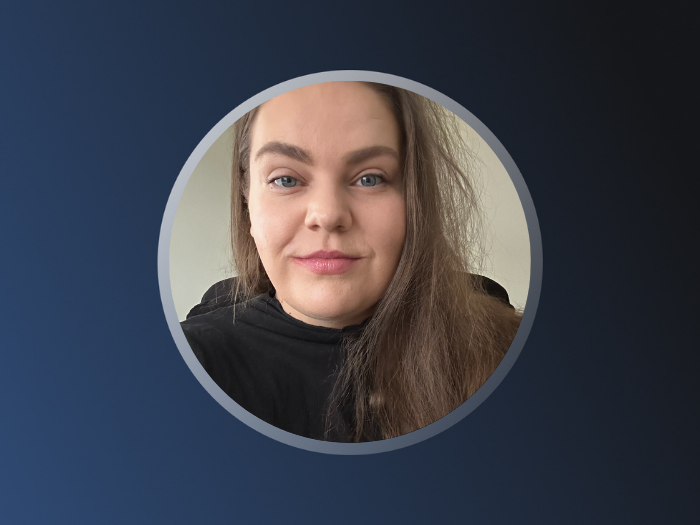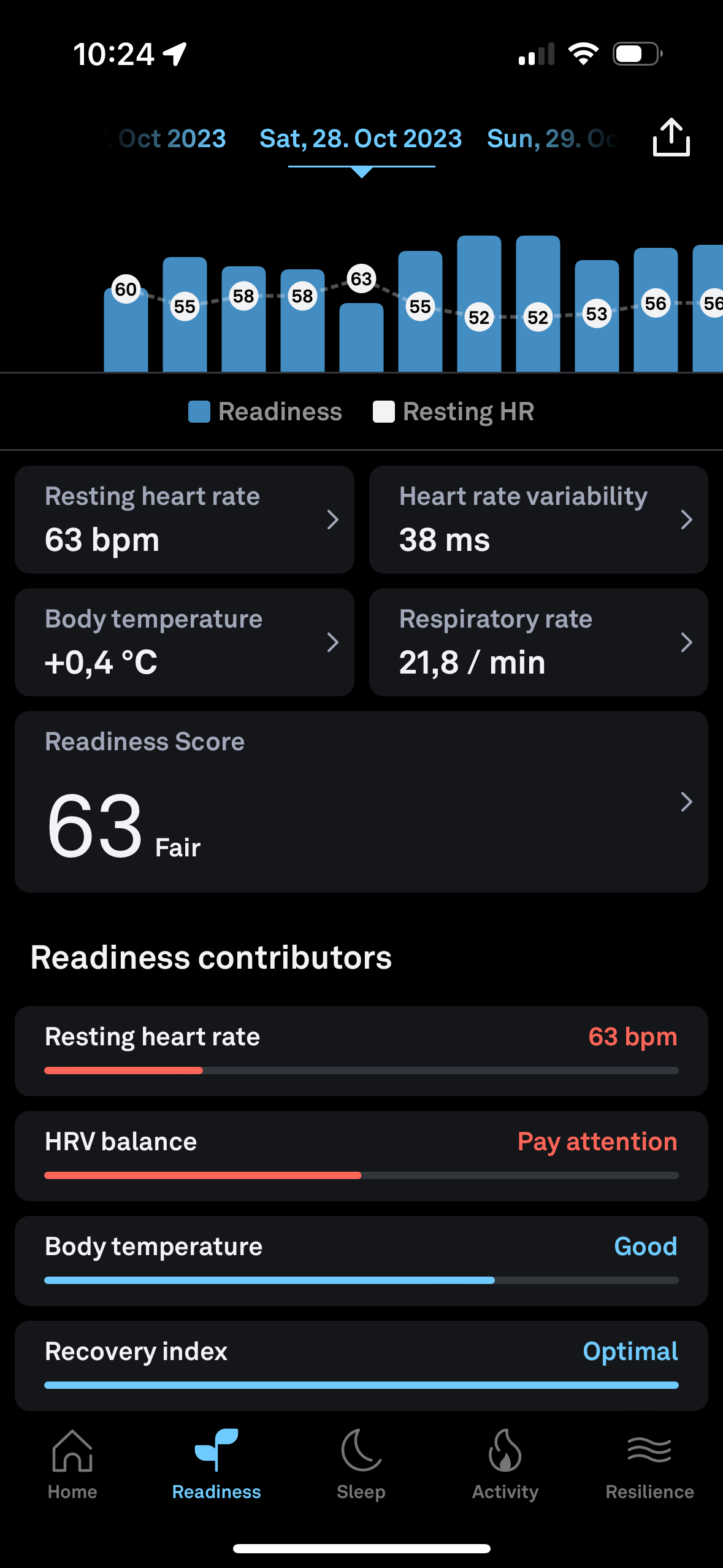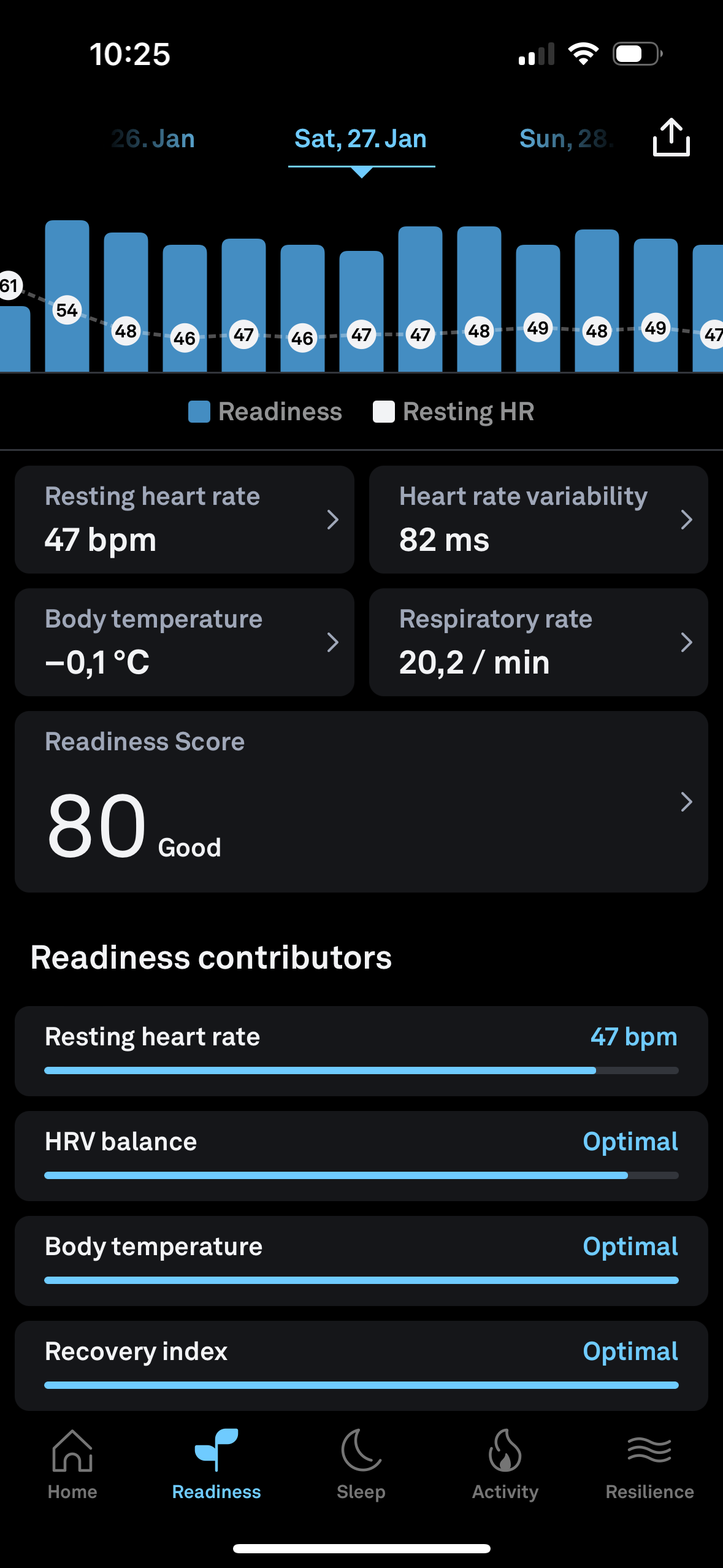Who: Hanna-Mai R., 29, Tallinn, Estonia
Surprising Oura insight: Going sugar-free “impacted my Oura data in ways I didn’t expect!” The most interesting changes were my nighttime resting heart rate (RHR), which dropped quite significantly, and my heart rate variability (HRV), which increased.
What led you to Oura?
I went through a tough couple of years, which included severe burnout in 2021. During this time, unhealthy food became really comforting to me, and I started eating more sugar. In 2022, I took a self-development course where we spoke about many different topics, including sleep, productivity, and rest. A guest speaker had an Oura Ring, and the way she spoke about it made me really interested.
In 2023, I bought one as a birthday present for myself. I had realized that poor sleep was probably contributing to my bad relationship with food. I wanted a device to help me improve my sleep and my eating habits, and couldn’t be happier with Oura.
Tell us about your health journey toward cutting back on sugar.
I’ve always had a sweet tooth, and my sugar intake was always very high. It was almost like an addiction. I ate a lot of refined carbohydrates. My eating habits caused me to be overweight, I slept badly, and experienced mood swings, mild acne, and other symptoms associated with too much sugar.
Every time I tried to give up sugar, I’d always rebound and end up eating even more. So I decided to join a 30-day sugar-free challenge in August 2023.
The challenge involved avoiding sugar, soft drinks, soda, fast food, chips, and cakes. I also tried to avoid sauces and bread. I didn’t eat much fruit, but sometimes I had berries. I ate whole foods, prioritized protein, and drank more water. My diet wasn’t super strict; there was just one main rule: no sugar!
READ MORE: 8 Foods and Drinks For Better Sleep (And 4 To Avoid!)
This challenge impacted my Oura data in ways I didn’t expect! My Readiness Score and Sleep Score improved, but the most interesting changes were my nighttime resting heart rate (RHR), which dropped quite significantly, and my heart rate variability (HRV), which increased.
Before the challenge, my RHR was between 57 and 63 bpm. By the second week of the challenge, it dropped to 48 bpm! And it remained between 48 and 49 bpm for the rest of the challenge! My HRV also jumped from around 38 to 82. It was a huge change!
After the challenge was over, I had a blip and started eating some sugar again. But I saw the difference in my RHR and HRV again, which made me realize how much harder I was forcing my heart to work. So I went back to a sugar-free lifestyle!
Since the beginning of the new year, I’ve been on a 98% sugar-free healthy diet, and my nighttime RHR stays between 45 and 49 bpm. Seeing my Oura data motivated me to make this diet permanent.
I have more energy, sleep better, and have better skin. I’ve also lost 10 kg (22 lbs). I feel very proud of myself. Being in love with myself and my life is my new identity!
READ MORE: 8 Possible Reasons Why Your Resting Heart Rate Is High
What advice would you give to someone who wants to eat less sugar?
1. Understand the impact of sugar. It’s important to understand what sugar does to your body, which I learned from reading books like The Glucose Revolution and Glucose Goddess. Plus, seeing the changes in my Oura data was the main reason that led me to quit sugar entirely.
2. Find your “why.” Ask yourself why you are craving it. It can be helpful to have an initial motivator; for me, it was weight loss. But now that’s just a side effect. I want to live as healthy as possible, for as many years as possible—and sugar has a big impact on your health.
3. Have a support system. My partner did the challenge with me, and I’m very grateful—it made it a lot easier.
4. Eat a high-protein, savory breakfast. This helped keep me full and avoid cravings.
5. Don’t underestimate the power of good sleep! Sleep is the foundation of health. I found it’s harder to avoid cravings when you’re tired.
RELATED: At 50, This Oura Member Hit a Lowpoint — Now at 63, She’s Fitter than Ever
What’s Your Oura Story?
Everyone’s story is unique, and we’d love to hear yours. Share your story here.







